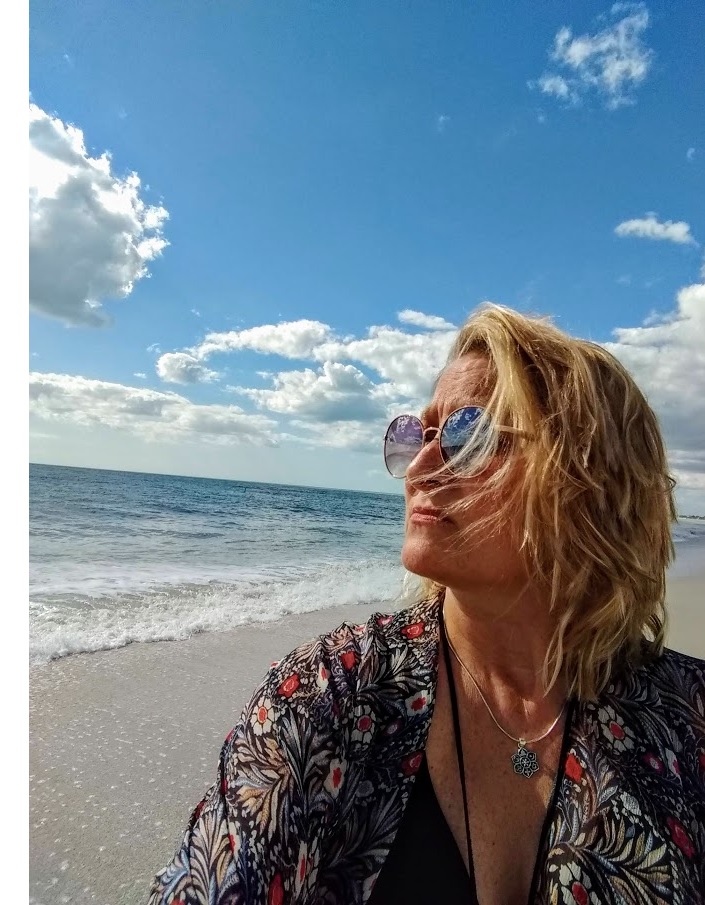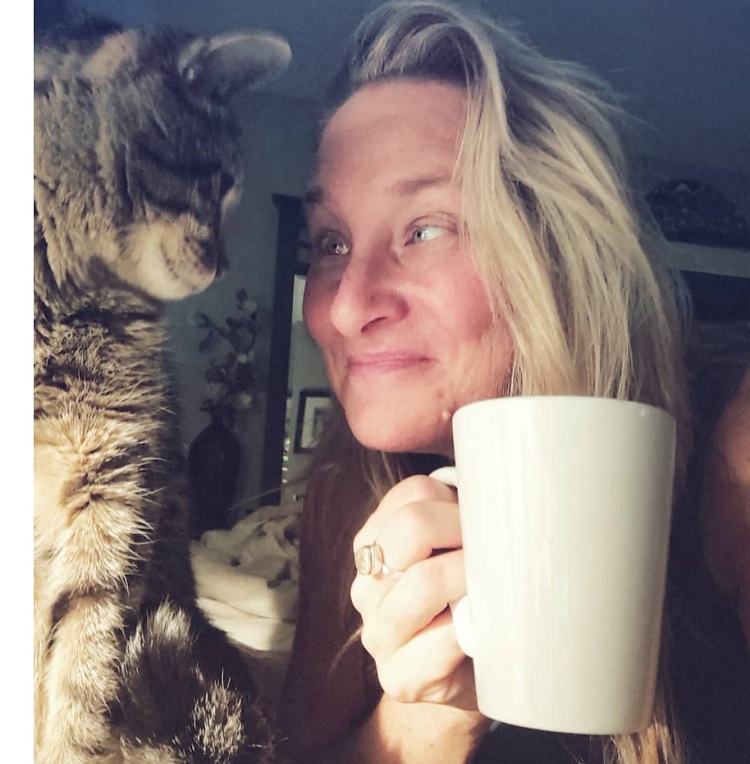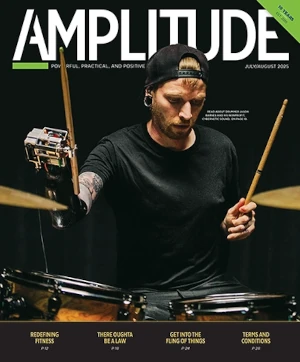There’s an integrity that can be found in owning one’s own grief.
by Chris Prange-Morgan

and hospital chaplain. Find her online
at chrisprangemorgan.com.
Every year, autumn ushers in its gentle nudge toward accepting that the weather will be changing. Crisp, curly leaves will turn yellow, red, and orange as they begin to release their grasp and gently drift toward the ground. We know it will get colder. Outdoor pursuits will become harder. We begin to shift our attention to other things to soften the bitter onslaught of winter.
I find myself looking at clothing advertisements on the internet. Warm, patterned sweaters, paired with the newest fashion bottoms and cute suede one-inch-heeled fleece-lined boots. Like most women, I like fashion. Fashion is fun. And it’s a great distractor as I ready myself for the dregs of another harsh Midwest winter.
Suddenly it hits me. “Dang! I can’t wear any of these boots. I can’t fit my prosthetic foot in them. And even if I could, the pitch of the heel would make walking hard to impossible (sigh). Just. Forget. It.”
I recall the many times when I’ve sat on the black padded bench in the aisle of the shoe store, covered in sweat with metal shoe-horn in hand, having my own personal pity party after yet another unsuccessful attempt at trying to jam my prosthetic foot into a boot I’d hoped would work. A deep sadness arises in the pit of my stomach as I realize that the stylish vision I have of myself has been shot to hell, all because of my complex grief relationship with footwear.
I look around at the other ladies contemplating their wide plethora of choices in style and heel height. I feel sad and I feel robbed. I choke back the tears attempting to well up behind my eyes as an odd ire arises, tinged with resentment. It’s unfair. The dregs of winter are coming and, dammit, I can’t even get myself a dang cute pair of boots.
I try to tell myself all sorts of things. “It’s only material stuff.” “Some people have it worse.” “You should feel lucky you’re a below-knee amputee, at least you have your knee!” The inner dialogue is endless, but it never dissipates completely. That’s the reality of grief. Sometimes it arises out of nowhere when you least expect it—like in the middle of the aisle at the shoe store.
I begin to realize that it’s not just cute footwear I miss. I miss the ease of living that I once had, to the accident that led to my amputation. I miss being swift on my feet and carefree. I miss life without pain. I miss the old me—eternally fun, lighthearted, and blithe.
Sitting on that shoe store bench, my desire to be “strong” or “resilient” didn’t matter, because my heart ached. I couldn’t deny the tears percolating up to the corners of my eyes. The longing to pull myself up by my bootstraps only underscored the reality that I wasn’t even able to get my foot into a dang boot—never mind the straps.
I breathed. I told myself it was OK, and that I wasn’t a wimp or a sissy just because I missed my five little piggies that had gone to the market in the sky.
Somehow, in my pressure to prove my strength and resilience, I had forgotten that grief would continue to find its way into my world. Like a gust of wind, it would catch me off guard and knock me flat on my tail when I least expected it.
It’s tempting to guilt or shame ourselves when unshakeable feelings of sadness and loss arise. As one mourning patient shared recently: “I want to move on but I can’t. I feel hollow and stuck, and I hurt all over.”
Words like “resilience” and “overcome” and “recover” permeate so many healthcare narratives, and in the immediate years after my amputation, I was attracted by their lure. But the mind and the heart and the body don’t forget easily.
In some ways grief is like a marathon, requiring grit and fortitude to keep going—with a keen awareness that turning back is not an option. But it’s also like a dance, and we are wise to follow her lead, and feel grateful for a retrospective glance at the grace obtained (even if reluctantly) through the experience.
As I continue to listen to stories of hospitalized patients in my role as a hospital chaplain, I’m saddled with the realization that loss is never simple. We never truly “get over it.” Pain and loss change us—not necessarily for the worse, but for the deeper and the wiser.
As Candyce Ossefort-Russell shares, “To try to bounce back to our old ways of being is to refuse to accept that there is no going back as much as we’d like to, and to turn away from the pain that comes from radical growth that’s being forced upon us whether we want to face it or not.” There is an integrity that can be found in owning one’s grief—in claiming it as a vehicle for connecting with others on a deeper, richer, more vulnerable level. To wish it away is to do ourselves and others a disservice.
Literally having one foot in the grave has caused me to slow down and appreciate life more. To acknowledge life’s tenderness and fleetingness. To accept the gift that time allows in her endowment to me—to whittle away within my creative endeavors, and to listen.
The beating heart of the world longs for tears to fertilize her soil and for tender hands to churn and overturn the crusty hardness that life imparts. Time truly is a gift. And so is our fragile, vulnerable, beautiful humanity.
Chris Prange-Morgan is an adoptive parent, patient advocate, trauma survivor, and hospital chaplain. She co-hosts the Full Catastrophe Parenting podcast with her husband, Scott. This article originally appeared in Psychology Today.




